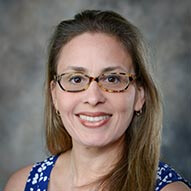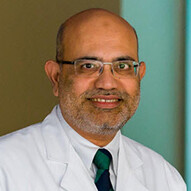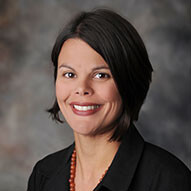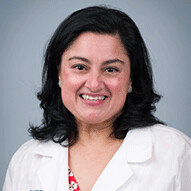Childhood interstitial lung disease (chILD)
Childhood interstitial lung disease (chILD) is the blanket term for several rare disorders that affect children’s lungs. Currently, there are no known cures for chILD.
What is childhood interstitial lung disease (chILD)?
Childhood interstitial lung disease (in·ter·sti·tial - lung - dis·ease) or chILD is a group of rare conditions that affects infants, children and adolescents. The different types of chILD have one thing in common — they all decrease the oxygen supply to a child’s body. chILD is so unusual that researchers don’t know how many children have each of its many types.
What are the different types of childhood interstitial lung disease (chILD)?
Examples of chILD include:
Acute interstitial pneumonia
Alveolar capillary dysplasia
Bronchiolitis obliterans
Connective tissue lung disease
Cryptogenic organizing pneumonia (COP)
Hypersensitivity pneumonitis
Lung growth abnormalities
Neuroendocrine cell hyperplasia of infancy (NEHI or persistent tachypnea of infancy)
Pulmonary interstitial glycogenosis (PIG)
Surfactant dysfunction mutations
What are the signs and symptoms of childhood interstitial lung disease (chILD)?
Because symptoms can be the same as other more common conditions such as asthma or cystic fibrosis (CF), your doctor will rule those out before diagnosing chILD.
More common symptoms of chILD include
Abnormal shadows on chest X-rays or CT scans
Abnormal lung function tests
Rapid breathing
Trouble breathing
Wheezing
Shortness of breath when exercising
Chronic or intermittent coughing
Coughing up blood
Recurring bronchiolitis or pneumonia
Low oxygen levels
Breathing with retractions (using neck muscles or those between the ribs while breathing)
Clubbing — enlargement of the tips of fingers or toes
How is childhood interstitial lung disease (chILD) diagnosed?
Childhood interstitial lung disease can be difficult to diagnose. If your child has severe, frequent breathing problems or has had severe lung infections or serious lung problems, consult a pulmonologist. A pediatric pulmonologist (a doctor who specializes in childhood lung disorders) can help rule out other, more common, ailments.
Medical history
Your doctor will begin her diagnosis by asking about your child's medical history. Questions may include:
Has your child had frequent, severe breathing problems?
Has he had any severe lung infections?
Did he have any serious lung problems as a newborn or infant?
Has he had any contact to lung irritants such as molds, dusts or chemicals?
Has he ever had radiation or chemotherapy treatments?
Does he have an autoimmune disease, a birth defect or some other medical condition?
Tests and diagnosis
No single test can diagnose any one type of chILD. Your doctor may perform one or more of the following:
Blood tests to look for genetic diseases
Chest X-ray
Lung function tests
Lung biopsy (a surgical procedure to get a sample of the lung for further examination)
Other tests to rule out other conditions including asthma, cystic fibrosis (CF) or immune deficiencies
Bronchoalveolar lavage (a way to remove a tiny sampling of cells from the lower respiratory tract using a bronchoscope to detect aspiration, bleeding, infections, injuries or other airway problems)
Tests to check for systemic diseases (involving the body's organs) related to child
How is childhood interstitial lung disease (chILD) treated?
Because the conditions that make up chILD are so rare and research has been limited, there are few treatment options available. Often, treatments are what doctors believe has worked in similar cases. Certain types of chILD, such as neuroendocrine cell hyperplasia of infancy, may even improve on their own.
Today, treatments for chILD range from supportive therapies to lung transplants. Some medications can help certain patients as well.
Supportive therapies are treatments to help relieve symptoms and improve your child’s quality of life. They include:
Breathing devices including ventilators to help ease breathing or special vests that help move mucus into your child’s upper airways
Bronchodilators, medications to relax the muscles around the airways, helping your child breathe easier
Nutrition therapies to help your child grow or gain weight
Oxygen therapy to help raise the oxygen level in your child’s blood
Physical therapy (PT) to help loosen mucus so your child can cough it up
Pulmonary rehabilitation to help improve the quality of life for children with chronic lung problems
Corticosteroids can help reduce lung inflammation in children with chILD. Other medications such as antimicrobials can treat lung infections. Acid-blocking medicines can help kids with acid reflux avoid aspiration as well.
A lung transplant maybe needed if other treatments haven't worked. Lung transplants are the only effective treatment for certain types of chILD. Those include alveolar capillary dysplasia and some surfactant dysfunction mutations.
Childhood interstitial lung disease (chILD) doctors and providers
 Michelle Caraballo, MDPediatric Pulmonologist and Sleep Medicine
Michelle Caraballo, MDPediatric Pulmonologist and Sleep Medicine Andrew Gelfand, MDPediatric Pulmonologist
Andrew Gelfand, MDPediatric Pulmonologist Peter Luckett, MDPediatric Pulmonologist
Peter Luckett, MDPediatric Pulmonologist Tanya Martinez-Fernandez, MDPediatric Pulmonologist/Sleep Medicine
Tanya Martinez-Fernandez, MDPediatric Pulmonologist/Sleep Medicine S. Kamal Naqvi, MDPediatric Pulmonologist/Sleep Medicine
S. Kamal Naqvi, MDPediatric Pulmonologist/Sleep Medicine Devika Rao, MDPediatric Pulmonologist
Devika Rao, MDPediatric Pulmonologist Yadira Rivera-Sanchez, MDPediatric Pulmonologist
Yadira Rivera-Sanchez, MDPediatric Pulmonologist Peter Schochet, MDPediatric Pulmonologist
Peter Schochet, MDPediatric Pulmonologist Preeti Sharma, MDPediatric Pulmonologist
Preeti Sharma, MDPediatric Pulmonologist Laura Ridnour, PA-CPhysician Assistant - Physical Medicine and Rehabilitation
Laura Ridnour, PA-CPhysician Assistant - Physical Medicine and Rehabilitation